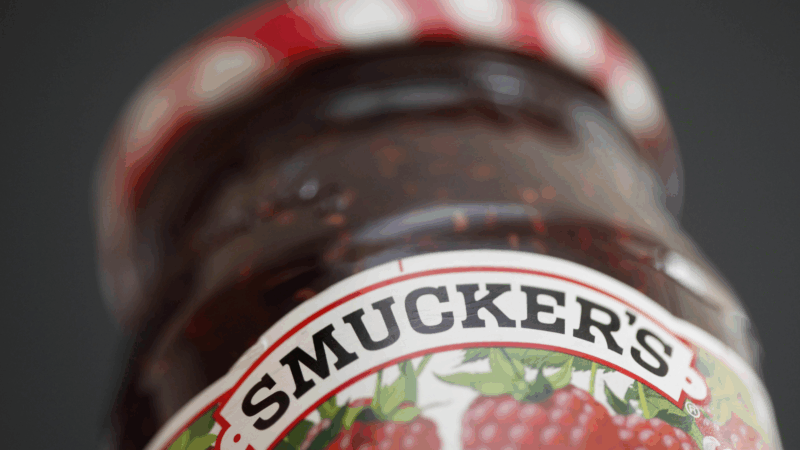J.M. Smucker plans to remove artificial colors from its jams and other products
J.M. Smucker Co. plans to remove artificial colors from its products by the end of 2027.
Orrville, Ohio-based Smucker said Thursday it will also remove synthetic dyes from foods sold to K-12 schools by the 2026-2027 school year.
Smucker said the majority of its products — including its Uncrustables sandwiches — are already free of synthetic dyes. But some products still have them, including sugar-free jams and ice cream toppings.
Smucker said some products from Hostess, which it acquired in 2023, also contain artificial colors. Twinkies are made with Red 40 and Yellow 5, for example, while Snoballs snack cakes are made with Red 40 Lake, a dye combined with aluminum to keep it from dissolving in water.
Smucker joins a growing number of big food companies that have announced plans to eliminate artificial dyes. Earlier this week, Nestle and Conagra Brands — the parent company of Duncan Hines — both said they would phase out synthetic dyes. Kraft Heinz and General Mills made similar pledges last week.
The federal government has stepped up its scrutiny of artificial colors in recent months. In January, days before President Donald Trump took office, the U.S. regulators banned the dye called Red 3 from the nation’s food supply, nearly 35 years after it was barred from cosmetics because of potential cancer risk.
In April, Trump’s Health Secretary Robert F. Kennedy Jr. and FDA Commissioner Marty Makary said the agency would take steps to eliminate synthetic dyes by the end of 2026, largely by relying on voluntary efforts from the food industry.
Reporters’ notebook: The Olympics closing ceremony is way more fun than you’d think
Olympics opening ceremonies tend to get more love than their closing counterparts. But a pair of NPR reporters who watched both in Italy left with a newfound appreciation for the latter.
Northeast readies for a major winter storm, with blizzard warnings in effect
New Jersey through Massachusetts could see 2 feet of snow. New York City's mayor said the city had not "seen a storm like this in a decade."
Mexican army kills leader of Jalisco New Generation Cartel, official says
The Mexican army killed the leader of the powerful Jalisco New Generation Cartel, Nemesio Rubén Oseguera Cervantes, "El Mencho," in an operation Sunday, a federal official said.
Ukraine’s combat amputees cling to hope as a weapon of war
Along with a growing number of war-wounded amputees, Mykhailo Varvarych and Iryna Botvynska are navigating an altered destiny after Varvarych lost both his legs during the Russian invasion.
University students hold new protests in Iran around memorials for those killed
Iran's state news agency said students protested at five universities in the capital, Tehran, and one in the city of Mashhad on Sunday.
Pakistan claims to have killed at least 70 militants in strikes along Afghan border
Pakistan's military killed at least 70 militants in strikes along the border with Afghanistan early Sunday, the deputy interior minister said.







